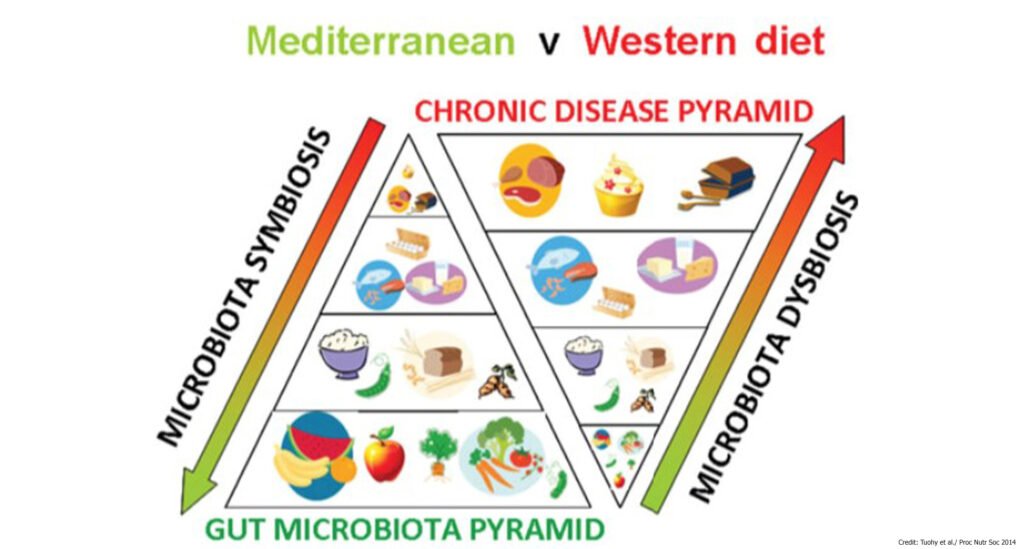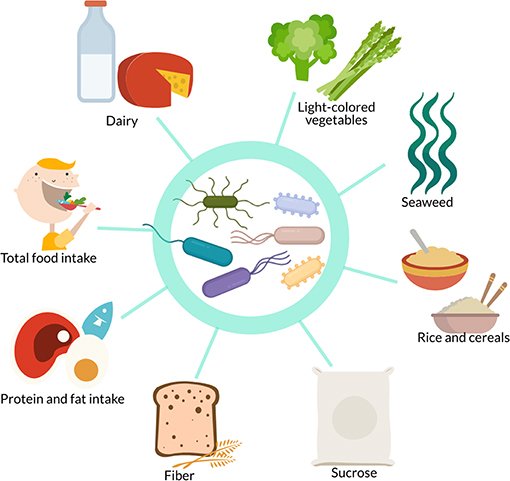Your gut health is home to trillions of tiny microorganisms, known as the gut microbiome. These tiny inhabitants play a vital role in your overall health, influencing everything from digestion and immunity to mental well-being and chronic disease risk. A balanced diet rich in whole foods and key nutrients is essential for supporting the growth and diversity of beneficial gut bacteria.
Understanding Gut Bacteria
Your gut microbiome is made up of over 1,000 species of bacteria. Each person’s unique balance of gut bacteria influences their health. Beneficial bacteria, like Bifidobacterium and Lactobacillus, help break down complex carbohydrates, produce vitamins and hormones, regulate inflammation, and boost immunity. An imbalance of gut bacteria, also known as dysbiosis, has been linked to various health issues, including digestive disorders, allergies, and autoimmune diseases.
Dietary Strategies for Supporting Gut Health
A well-balanced diet is crucial for maintaining a healthy gut microbiome. Eating a variety of whole foods, including fruits, vegetables, whole grains, and legumes, provides essential fiber, vitamins, and minerals. Fiber-rich foods feed beneficial bacteria, promoting their growth and diversity. Polyphenol-rich foods, such as berries, green tea, and dark chocolate, also support gut health by reducing inflammation and promoting bacterial diversity.

The Role of Probiotics and Prebiotics
Probiotics introduce beneficial bacteria into the gut, while prebiotics support their growth. Probiotic-rich foods, such as yogurt, kefir, sauerkraut, and kimchi, contain live cultures of beneficial bacteria. Prebiotic-rich foods, like asparagus, garlic, and onions, provide non-digestible fibers that feed beneficial bacteria.
Supplements for Gut Health
In addition to a balanced diet, supplements can support gut health. Probiotic supplements contain live cultures of beneficial bacteria, while prebiotic supplements provide non-digestible fibers. Omega-3 fatty acids, found in fatty fish, flaxseeds, and chia seeds, reduce inflammation and promote the growth of beneficial bacteria.
The Impact of Gut Health on Overall Well-being
A healthy gut microbiome plays a crucial role in overall well-being, influencing digestion and immunity, mental health and mood, chronic disease risk, and inflammation and skin health. Research has shown that an imbalance of gut bacteria is linked to various health issues, including digestive disorders, allergies, autoimmune diseases, and even mental health conditions like anxiety and depression.
Tips for Maintaining a Healthy Gut
Eating a balanced diet rich in whole foods, staying hydrated, limiting processed foods, managing stress, and getting enough sleep are all essential for maintaining a healthy gut. Additionally, incorporating probiotic and prebiotic-rich foods into your diet can support gut health.
Conclusion
A well-balanced diet rich in whole foods, fiber, and key nutrients is essential for nurturing a healthy gut microbiome. By incorporating dietary strategies and supplements, you can promote the growth and diversity of beneficial gut bacteria, supporting overall well-being and resilience against disease. Remember, a healthy gut is the foundation of overall health.
For more information visit us at astrosohaib or other
